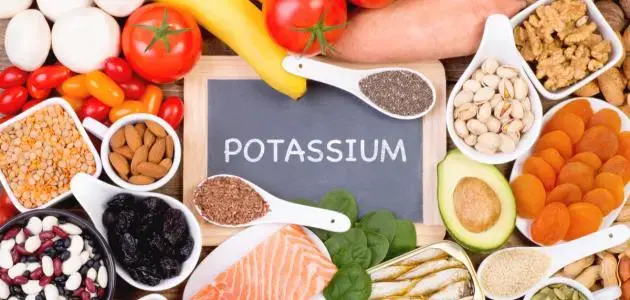Potassium is one of those minerals your body really needs, but in the right amount. Too much or too little can lead to health problems—some short-term and others more serious. Since your body can’t make potassium on its own, it’s important to get enough through your diet. Here’s a rundown of foods that are rich in potassium.
Fruits High in Potassium
Many fruits are great sources of potassium. Here are some top picks and how much potassium you’ll get in a one-cup serving (or equivalent):
- Avocado: About 975 mg (21% of your daily value)
- Guava: 688 mg (15%)
- Kiwi: 562 mg (12%)
- Banana: 537 mg (11%)
- Cantaloupe: 473 mg (10%)
- Pomegranate: 411 mg (9%)
- Apricot: 401 mg (9%)
- Honeydew Melon: 388 mg (8%)
- Orange: 326 mg (7%)
- Cherries: 342 mg (7%)
- Dried Apricots (about a handful): 330 mg (7%)
- Lychee: 325 mg (7%)
- Mandarin Oranges: 324 mg (7%)
- Grapefruit: 320 mg (7%)
- Peaches: 287 mg (6%)
- Mango: 277 mg (6%)
- Mulberries: 272 mg (6%)
- Persimmon: 270 mg (6%)
- Papaya: 264 mg (6%)
- Plum: 259 mg (6%)
- Strawberries: 254 mg (5%)
- Blackberries: 233 mg (5%)
Vegetables High in Potassium
Plenty of veggies are potassium powerhouses. Here are some great ones to include in your meals:
- Beet Greens (cooked): 1309 mg (28%)
- Lima Beans (cooked): 969 mg (21%)
- Swiss Chard (cooked): 961 mg (20%)
- Potato (medium, cooked): 926 mg (20%)
- Acorn Squash (cooked): 896 mg (19%)
- Spinach (cooked): 839 mg (18%)
- Bok Choy (cooked): 631 mg (13%)
- White Mushrooms (cooked): 555 mg (12%)
- Sweet Potato (mashed): 536 mg (11%)
- Tomatoes (cooked): 523 mg (11%)
- Brussels Sprouts (cooked): 495 mg (11%)
- Zucchini (cooked): 475 mg (10%)
- Broccoli (cooked): 457 mg (10%)
- Artichoke (cooked): 444 mg (9%)
- Green Peas (cooked): 434 mg (9%)
- Asparagus (cooked): 403 mg (9%)
- Sweet Corn (cooked): 392 mg (8%)
- Rutabaga (cooked): 367 mg (8%)
- Fennel: 360 mg (8%)
- Pumpkin (cooked): 346 mg (7%)
Other Potassium-Rich Foods
Aside from fruits and veggies, here are more potassium-packed foods:
- Lentils (cooked): 731 mg per cup
- Raisins: 618 mg per 1/2 cup
- Milk: 366 mg per cup
- Black Beans: 611 mg per cup
- Edamame: 676 mg per cup
- Tomato Paste: 486 mg per 3 tablespoons
- Coconut Water: 600 mg per cup (13% of daily needs)
- White Beans (cooked): 829 mg per cup
Seafood (per 85g serving):
- Wild Atlantic Salmon: 534 mg
- Mackerel: 474 mg
- Halibut: 449 mg
- Rainbow Trout: 383 mg
- Snapper: 444 mg
Potassium Supplements
Supplements are usually given to people who are on certain diuretics. It's important to consult a healthcare provider and get your potassium levels checked before taking supplements.
Recommended Daily Intake
Here’s how much potassium different age groups need each day (in mg):
- 0–6 months: 400 mg
- 7–12 months: 860 mg
- 1–3 years: 2,000 mg
- 4–8 years: 2,300 mg
- Boys 9–13 years: 2,500 mg
- Girls 9–18 years: 2,300 mg
- Boys 14–18 years: 3,000 mg
- Men 19+ years: 3,400 mg
- Women 19+ years: 2,600 mg
- Pregnant teens (14–18 years): 2,600 mg
- Pregnant women (19+ years): 2,900 mg
- Breastfeeding teens (14–18 years): 2,500 mg
- Breastfeeding women (19–50 years): 2,800 mg
Why Potassium Matters
Potassium (chemical symbol K) is crucial for your body to function properly. It helps maintain fluid balance, supports muscle contractions, keeps your heartbeat steady, and even helps nerves work right. Plus, it helps counteract some of the negative effects sodium has on blood pressure. So, getting enough potassium every day really supports your overall health.
Leave a comment
Your email address will not be published. Required fields are marked *




